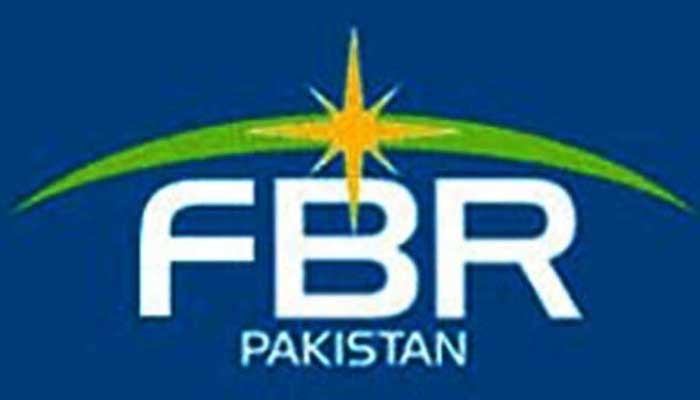FBR tax collection target of Rs4,398 bn kept unchanged
The government also announced a fixed tax scheme for small shopkeepers working in Islamabad with possible rate of 0.02 percent of their turnover as pilot project which might be replicated in other parts of the country.
ISLAMABAD: Without changing the FBR’s annual tax collection target of Rs4,398 billion for the current fiscal year, the PTI government took measures for bearing a net revenue loss of Rs6.8 billion through supplementary finance bill introduced in the National Assembly here on Wednesday.
In major relief measures, the government abolished withholding tax on cash withdrawal of Rs50,000 for filers as this step will cause revenue loss of Rs2 to 3 billion in the remaining period of the current fiscal year. The government allowed non-filers to buy cars up to 1300cc and abolished regulatory duty on import of hundreds of items on raw materials for industrial sectors.
It introduced uniform tax on import of mobile phone sets whereby the tax rate was lowered on mobile phone having price up to Rs100,000 while the tax rate jacked up on mobile sets having price range of over 150,000. The government also waived off 5 percent customs duty on import of newsprint. The super tax for non-banking sector has been abolished with effect from July 1, 2019. The government also proposed provisional assessment in case of an offshore asset not declared earlier in the aftermath of unearthing Panama and other leaks.
The government also announced a fixed tax scheme for small shopkeepers working in Islamabad with possible rate of 0.02 percent of their turnover as pilot project which might be replicated in other parts of the country. The advance tax at the time of auction of franchise rights, from participating teams in national and international sports tournament organised by any sports board or entity established by the government, is being abolished.
“We have provided relief of around Rs10.8 billion and imposed taxes of Rs4 billion so net relief measures will have an impact of Rs6.8 billion. Major relief has been provided for import substitution in terms of reduction in duties and regulatory duties on raw material for industrial sector,” the FBR members told journalists in technical briefing here at Board’s headquarters on Wednesday night.
The federal excise duty is already imposed on imported cars and jeeps of engine capacity exceeding 1800cc at 20 percent. In order to further discourage the import of such luxury cars and jeeps, it is proposed to enhance the rate of excise duty from 20 percent to 25 percent, for such cars and jeeps up to capacity 3000cc and to 30 percent for cars exceeding 3000cc. Furthermore, it is proposed to levy excise duty at 10 percent on locally manufactured/assembled cars and SUVs etc. with engine capacity exceeding 1800cc.
The customs duty on plastic moulding compound is being reduced from 5 percent to 3 percent. The customs duty on industrial inputs covered under (53 tariff lines) is being either removed or reduced and additional customs duty on industrial inputs covered under 22 tariff lines is being removed. This measure will be implemented with effect from 31st March, 2019. Regulatory duty on industrial inputs covered under 30 tariff lines is being either removed or reduced. Regulatory duty on smuggling prone items like tyres, padlocks, groundnuts, food/chocolate preparations, floor coverings, vacuum flasks falling under 24 tariff lines is being reduced. Regulatory duty is being removed on input materials (approximately 200 tariff lines) imported under SRO 655(I)/2006 dated 05.06.2006 that are used for manufacturing of auto parts by local vendors.
It is proposed to allow non-resident Pakistanis holding international passports can purchase any motor vehicle and immovable property without filing requirements. After amendments, the restriction on purchase of locally manufactured motor vehicles above 1300cc is proposed to be abolished for non-filers.
For furthering ease of doing business the frequency of monthly withholding statements has been done away with and now businesses shall have to file two statements instead of 12 statements.
For banks the rate of super tax at 4 percent as was previously has been maintained till tax year 2021 whereas for non-banking persons it is intended to abolish this tax from tax year 2020. For companies availing group relief, tax on inter-corporate dividend has been reduced to the extent of percentage of shareholding the recipient of dividend has in the distributing company. To promote capital formation, the tax on undistributed profits is being abolished. The tax on members of stock exchange in lieu of their commission has been abolished. Now their income from commission is to be taxed under normal law. Through this amendment exemption has been granted for five years to industrial undertakings set up for manufacturing of equipment used in generation of renewable energy if such undertaking is set up between 1st March 2019 and 30th June 2023.
In order to encourage greenfield investment and industrialisation, it is being proposed to grant exemption from payment of sales tax on imported plant and machinery. The FBR also proposed to issue refund bond in order to clear Rs200 billion refunds stuck up with the Bureau creating liquidity crunch.
Exemption on machinery and equipment relating to renewable energy is already available under the Sixth Schedule to the Sales Tax Act, 1990. However, in order to provide for certainty and give confidence to investor, the continuity of exemption is being assured up to 30th June, 2023, by amending relevant provisions in the Sixth Schedule. The existing exemption in the Sixth Schedule of the Sales Tax Act, 1990, relating to ostomy procedures for cancer patients is restrictive and lacks clarity. The exemption is now being linked to ostomy related appliances and items.
-
 A$AP Rocky Sidesteps Marriage Question About Rihanna
A$AP Rocky Sidesteps Marriage Question About Rihanna -
 Brooklyn Beckham Covers Tattoos That Honoured His Parents
Brooklyn Beckham Covers Tattoos That Honoured His Parents -
 2030 Winter Olympics Host Confirmed As French Alps Unveil Bold Plans
2030 Winter Olympics Host Confirmed As French Alps Unveil Bold Plans -
 Brad Karp Resigns From Paul Weiss After Epstein Email Revelations
Brad Karp Resigns From Paul Weiss After Epstein Email Revelations -
 Toronto Police Corruption Probe Leads To Arrests Of Seven Officers
Toronto Police Corruption Probe Leads To Arrests Of Seven Officers -
 Claire Foy Reveals Years-long Battle With Parasite Infection
Claire Foy Reveals Years-long Battle With Parasite Infection -
 Winnipeg Elementary School Closes After Voicemail Threat Sparks Investigation
Winnipeg Elementary School Closes After Voicemail Threat Sparks Investigation -
 Kristen Stewart Steps Into A New Role Offscreen
Kristen Stewart Steps Into A New Role Offscreen -
 Instagram Down: Over 10,000 Users Report Issues In The US
Instagram Down: Over 10,000 Users Report Issues In The US -
 Mark McMorris Stretchered Off After Heavy Training Crash
Mark McMorris Stretchered Off After Heavy Training Crash -
 Is Bella Hadid Linked To Adan Banuelos Arrest Incident? Report
Is Bella Hadid Linked To Adan Banuelos Arrest Incident? Report -
 'Thor' Star Chris Hemsworth Reveals Favourite 'Avengers: Doomsday' Teaser
'Thor' Star Chris Hemsworth Reveals Favourite 'Avengers: Doomsday' Teaser -
 Shamed Andrew Rejected By Royal Staff: ‘Nobody Wants To Work For Him’
Shamed Andrew Rejected By Royal Staff: ‘Nobody Wants To Work For Him’ -
 Gavin McKenna Charged With Assault, Penn State Issues Statement
Gavin McKenna Charged With Assault, Penn State Issues Statement -
 Why ASAP Rocky Wants Kids To Learn Rap Music At School?
Why ASAP Rocky Wants Kids To Learn Rap Music At School? -
 Dove Cameron Reflects On Traumatic Childhood Loss She 'rarely Talks About'
Dove Cameron Reflects On Traumatic Childhood Loss She 'rarely Talks About'




